42 weathering and erosion diagram
20 Best Weathering and Erosion Venn Diagram ideas ... Jan 15, 2018 - Explore 𝘽𝙚𝙩𝙝 𝙒𝙝𝙞𝙩𝙚's board "Weathering and Erosion Venn Diagram" on Pinterest. See more ideas about weathering and erosion, erosion, 4th grade science. Weathering and Erosion | Editable Venn Diagram Template on ... Weathering and Erosion ( Venn Diagram) Use Creately's easy online diagram editor to edit this diagram, collaborate with others and export results to multiple image formats. We were unable to load the diagram. You can edit this template and create your own diagram. Creately diagrams can be exported and added to Word, PPT (powerpoint), Excel ...
PDF What is the difference between weathering and erosion? weathering, they may start to be moved by wind, water, or ice. When the smaller rock pieces (now pebbles, sand or soil) are moved by these natural forces, it is called erosion. So, if a rock is changed or broken but stays where it is, it is called weathering. If the pieces of weathered rock are moved away, it is called erosion.
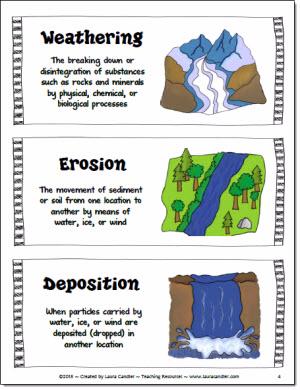
Weathering and erosion diagram
Weathering, Erosion, Deposition and Soil Formation Diagram ... Humus. material formed from decaying leaves and other organic matter. Erosion. The process by which wind, water, ice, or gravity transports soil and sediment from one location to another. Weathering. The process by which rocks on Earth's crust are broken down is called. mechanical weathering. Physical changes in rocks, such as size and shape. Weathering & Erosion Diagram | Quizlet Start studying Weathering & Erosion. Learn vocabulary, terms, and more with flashcards, games, and other study tools. Weathering, Erosion, Deposition, & Soil Diagram | Quizlet Lichen. living things (biological) that cause chemical weathering by releasing a weak acid. Erosion. The process by which wind, water, ice, or gravity moves fragments of rock and soil. Deposition. the process of dropping, or depositing, sediment and/or rocks in a new location. Alpine Glacier.
Weathering and erosion diagram. Weathering, Erosion, and Deposition Diagram | Quizlet weathering. The breaking down of rocks and other materials on the Earth's surface. Erosion. Process by which weathered rock and soil are moved from one place to another. Deposition. Process in which sediment is laid down in new locations. meander. A looplike bend in the course of a river. cutbank. PDF Weathering & Erosional Forces **Draw Diagram of Ice ... WEATHERING & EROSIONAL FORCES 7.1 Weathering - Weathering = a process that breaks down rocks into smaller and smaller fragments EX: potholes, statues breaking down, gravestone writing getting blurred, etc. **DRAW DIAGRAM OF A ROCK WEATHERING INTO SMALLER PIECES** **DRAW DIAGRAM OF ICE WEDGING IN A ROCK** PDF Weathering and Erosion - millriverschools.org From National Geographic Education: "Weathering is the breaking down or dissolving of rocks and minerals on Earth's surface. Water, ice, acids, salt, plants, animals, and changes in temperature are all agents of weathering. Once the rock has been broken down, a process called erosion transports the bits of rock and minerals away." Venn Diagram of Weathering and Erosion [classic] | Creately Venn Diagram of Weathering and Erosion [classic] by Jordans H. Edit this Template. Use Creately's easy online diagram editor to edit this diagram, collaborate with others and export results to multiple image formats. You can edit this template and create your own diagram. Creately diagrams can be exported and added to Word, PPT (powerpoint ...
Rock Cycle For Kids | What Is The Rock Cycle - DK Find Out! Erosion. Erosion is the movement or carrying away of rock pieces by a river, glacier, or wind. Weathering. Rain, wind, frost, chemicals, heat, and living things all break down rocks. Compacting. The rock particles at the bottom of a sea or lake get squashed and packed together. They gradually harden to form solid sedimentary rock. 5.4 Weathering and the Formation of Soil – Physical Geology The primary agents of the erosion of unprotected soil are water and wind. Water erosion is accentuated on sloped surfaces because fast-flowing water obviously has greater eroding power than still water (Figure 5.17). Raindrops can disaggregate exposed soil particles, putting the finer material (e.g., clays) into suspension in the water. Difference Between Erosion and Weathering - Comparison Chart Erosion and weathering are the processes in which the rocks are broken down into fine particles. Erosion is the process in which rock particles are carried away by wind and water. Weathering, on the other hand, degrades the rocks without displacing them. Given below in the tabular column are listed more differences between erosion and weathering. Weathering And Erosion Venn Diagram A VENN DIAGRAM Both of them Erosion Weathering Erosion is when any dissolved rock material moves. Water, wind, animals, and gravity all cause erosion. Weathering is when rock breaks down into smaller pieces. Chemical weathering is done by rainwater or wind. Physical Weathering is done by animals and men.
Biome - Wikipedia Etymology. The term was suggested in 1916 by Clements, originally as a synonym for biotic community of Möbius (1877). Later, it gained its current definition, based on earlier concepts of phytophysiognomy, formation and vegetation (used in opposition to flora), with the inclusion of the animal element and the exclusion of the taxonomic element of species composition. Rock Cycle – Definition, Steps, Importance, Diagram Nov 02, 2020 · 2) Formation of Sedimentary Rock – Weathering, Erosion, Sedimentation, and Compaction. Due to weathering and erosional activities, the igneous rocks are broken down to form sediments in the form of gravel, sand, silt, and clay, which gets mixed and pressed together for extended periods to form sedimentary rocks. PDF Erosion, Weathering, and Change Activity Guide Weathering is a surface or near-surface process. No movement is involved in weathering. Erosion occurs as soon as a rock particle (loosened by one of the two weathering processes) moves. Mass wasting is simply movement down slope due to gravity. Rock falls, slumps, and debris flows are all examples of mass wasting. Materials Venn Diagram On Weathering And Erosion - Studying Diagrams Venn Diagram of Weathering and Erosion Venn Diagram Use Createlys easy online diagram editor to edit this diagram collaborate with others and export results to multiple image formats. Chemical weathering dissolves rocks and changes them. Weathering they may start to be moved by wind water or ice.
Do do a venn diagram about weathering and erosion venn ... Weathering is the breaking down of rock and erosion carries it away. Both of them contribute in some way to the formation of new soil. Comparing the 1920s and today in a venn diagram?
Weathering Module Introduction THE ROCK CYCLE: (some content and the diagram below borrowed from NASA) The rock cycle best explained as the relationship between earth's internal and external processes. Weathering (breaking down rock) and erosion (transporting rock material) at or near the earth's surface breaks down rocks into small and smaller pieces.
Weathering and erosion - Teaching resources G3 G4 G5 Science. Chemical Weathering, Physical Weathering, Erosion, and Deposition Group sort. by Evicaria. Weathering and Erosion Missing word. by Chollis1. Weathering and Erosion Group sort. by Rbalda06. G5 Science. Weathering and Erosion Sort Group sort.
PDF Regents Questions Chapter 4: Weathering and Erosion Chapter 4: Weathering and Erosion August 2012 17 The block diagram below shows part of a meandering stream. Line XY shows the location of a stream cross section. Which cross section best represents the shape of the stream channel at line XY?
Weathering, Erosion and Deposition Multiple Hjhkhjkhk Choice 4. The diagram below shows sand particles being moved by wind. At which Earth surface locations is this process usually the most dominant type of erosion? (1) deserts and beaches (2) deltas and floodplains (3) glaciers and moraines (4) mountain peaks and escarpments 2. Most sandstone bedrock is composed of sediment that was

Earth Science Posters 4 Pack - Earth Science Decorations Include Earth's Structure, Weathering, Plate Tectonics and The Water Cycle Poster. Large ...
AS Rocks & Weathering | Mrs Conrad's KIS I-ALEVEL Geography ... Peltier’s diagram showing variations of chemical and mechanical weathering with climate This graph shows the types of weathering most commonly associated with differing climates. See if you can answer the following questions on this graph and then scroll down for the answers afterwards
Weathering, Erosion, and Deposition Diagram | Quizlet Weathering. The process where rock is dissolved, worn away or broken down into smaller and smaller pieces. Physical - (mechanical weathering) The way in which rock breaks up into smaller pieces without any chemical change in the materials of rock. Examples of physical weathering.
Interactives . The The Rock Cycle . How Rocks Change The resulting bits and pieces of material are called sediment. Sediment is then transported by wind and water, often ending up far from where it started. These processes of breakdown and transport due to exposure to the environment are called weathering and erosion. Weathering and erosion affect all rocks on the earth's surface.
Weathering, Erosion, Deposition, & Soil Diagram | Quizlet Lichen. living things (biological) that cause chemical weathering by releasing a weak acid. Erosion. The process by which wind, water, ice, or gravity moves fragments of rock and soil. Deposition. the process of dropping, or depositing, sediment and/or rocks in a new location. Alpine Glacier.
Weathering & Erosion Diagram | Quizlet Start studying Weathering & Erosion. Learn vocabulary, terms, and more with flashcards, games, and other study tools.
Weathering, Erosion, Deposition and Soil Formation Diagram ... Humus. material formed from decaying leaves and other organic matter. Erosion. The process by which wind, water, ice, or gravity transports soil and sediment from one location to another. Weathering. The process by which rocks on Earth's crust are broken down is called. mechanical weathering. Physical changes in rocks, such as size and shape.
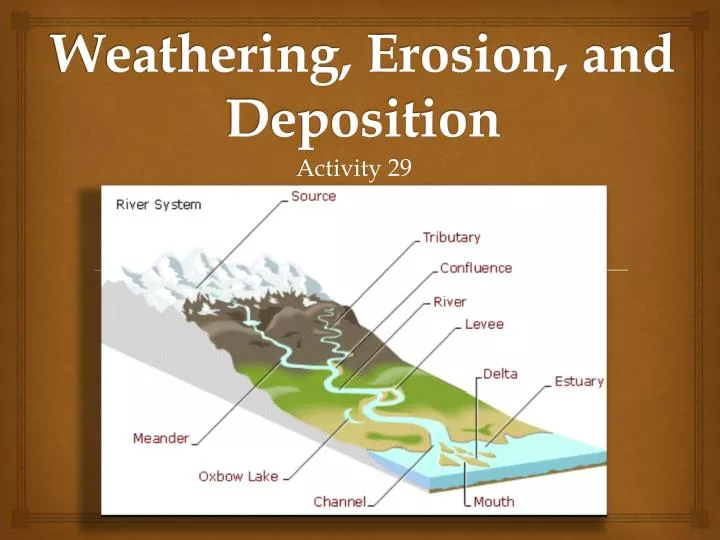
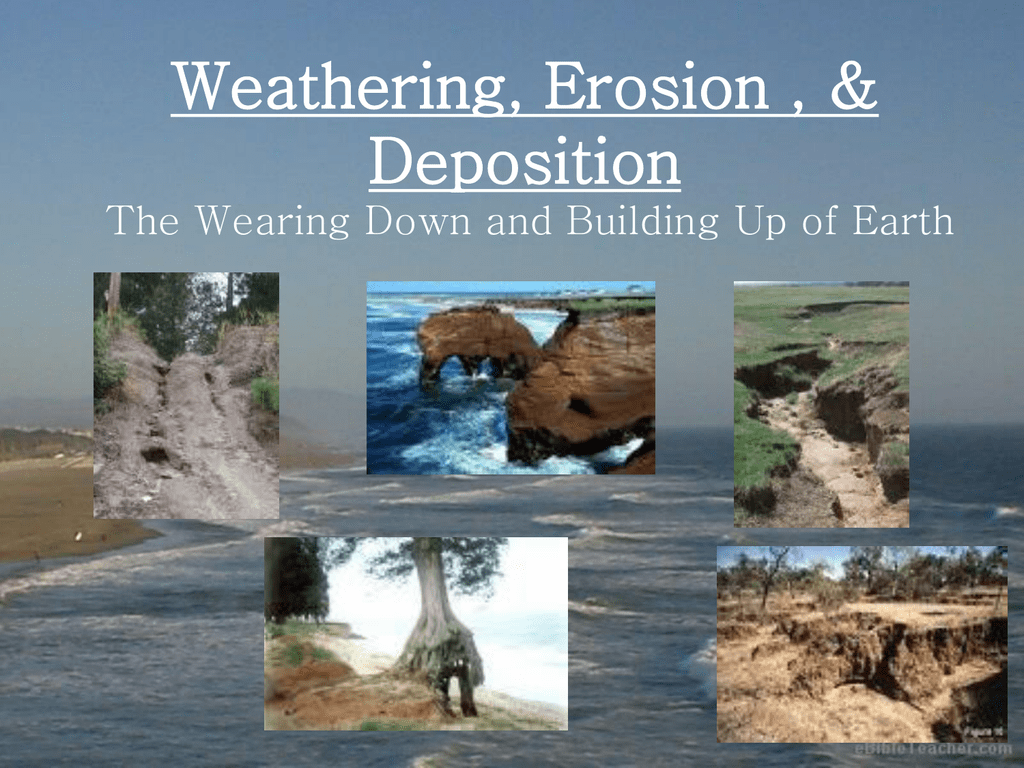
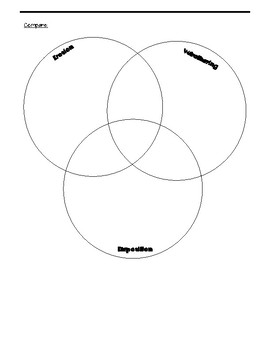
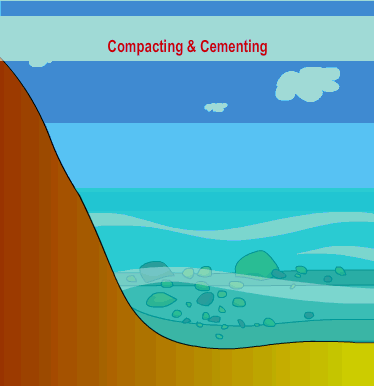
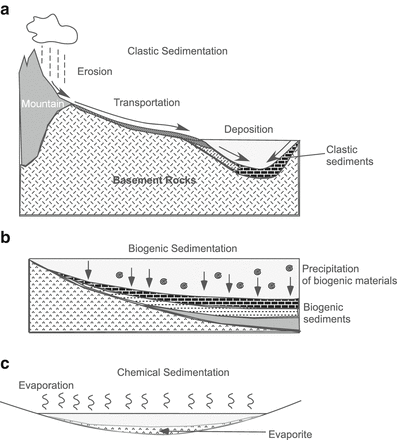


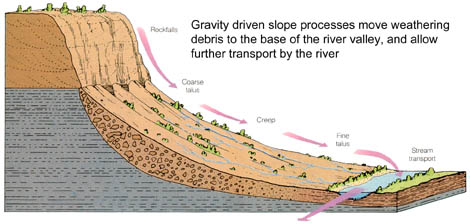

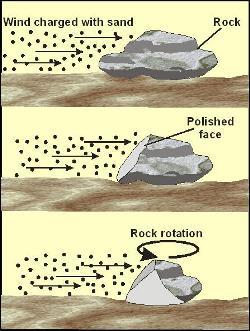
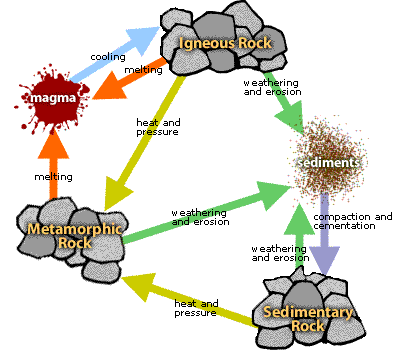
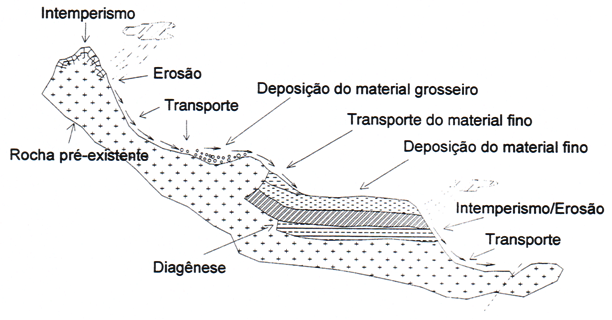




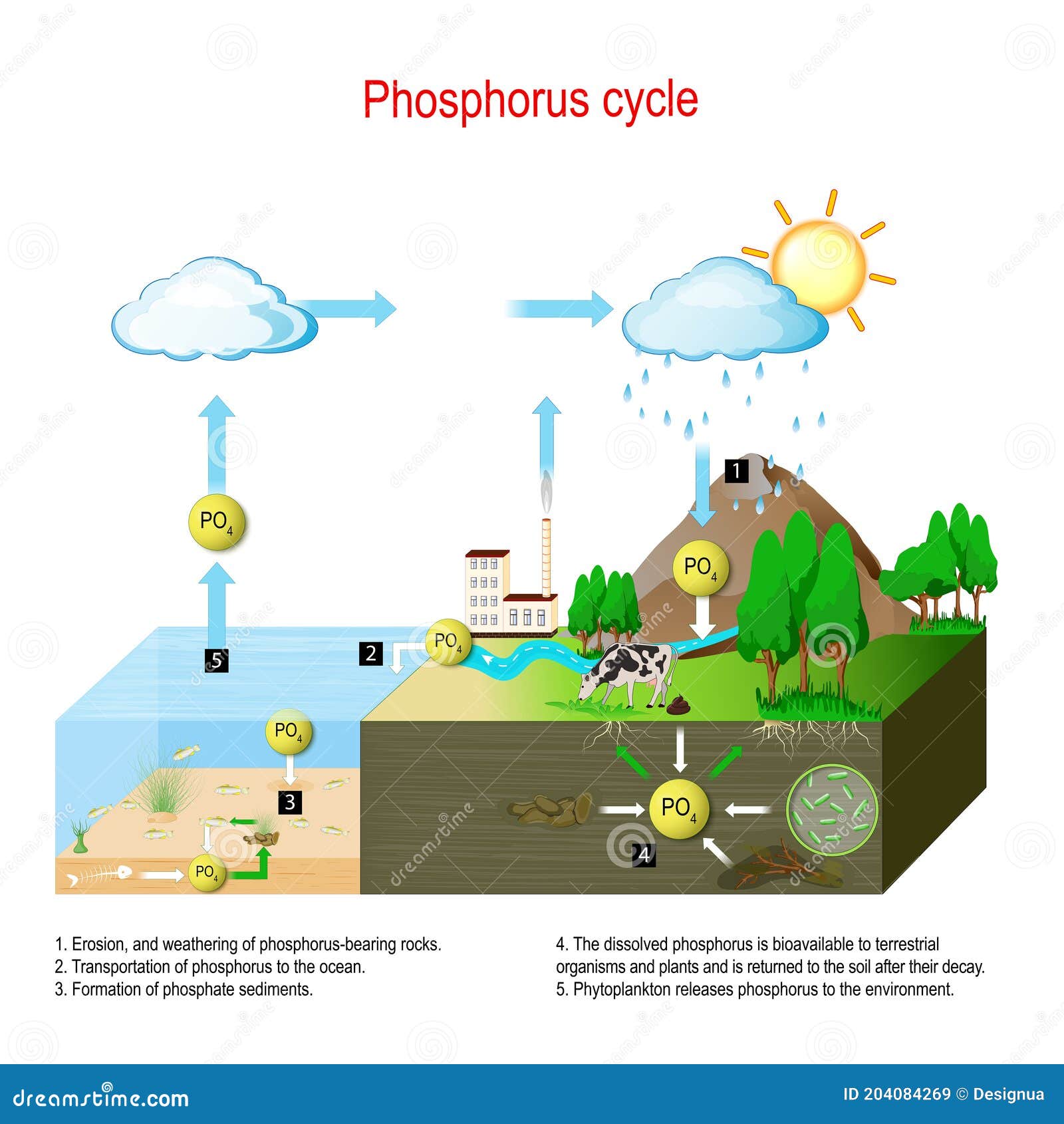

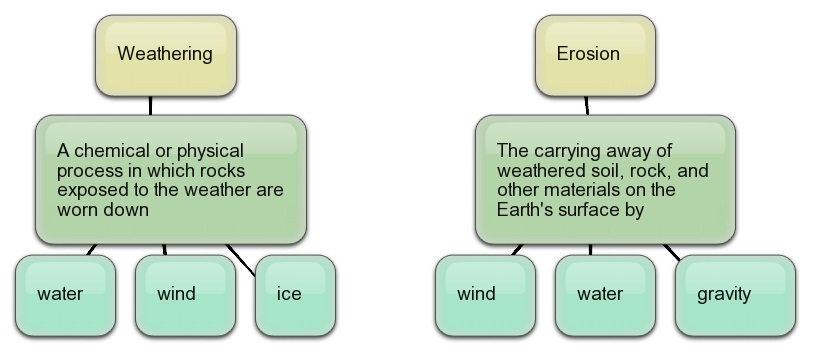

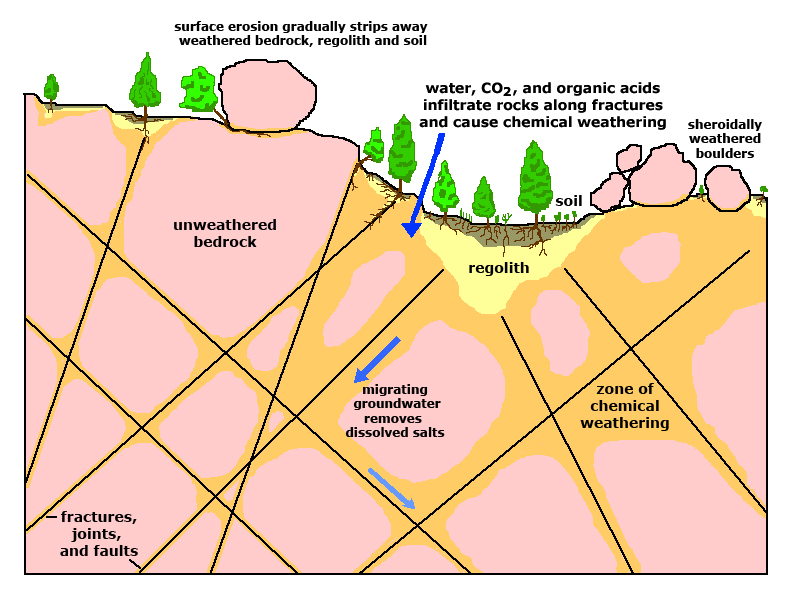
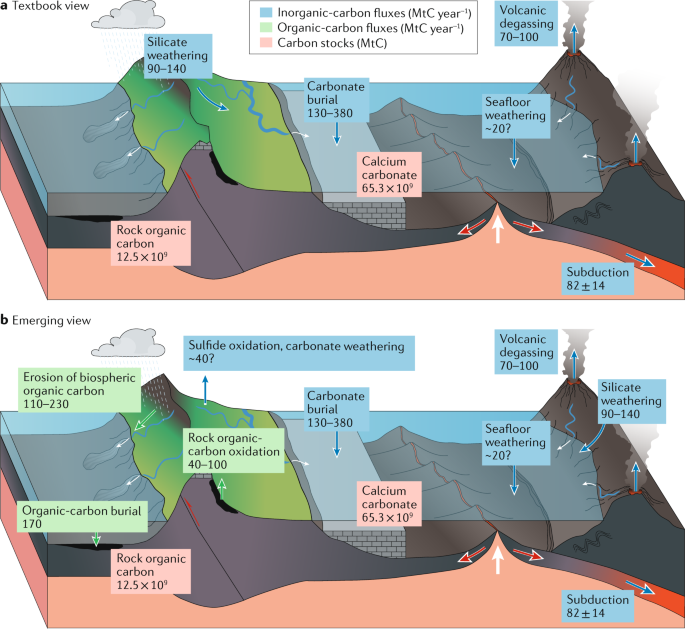

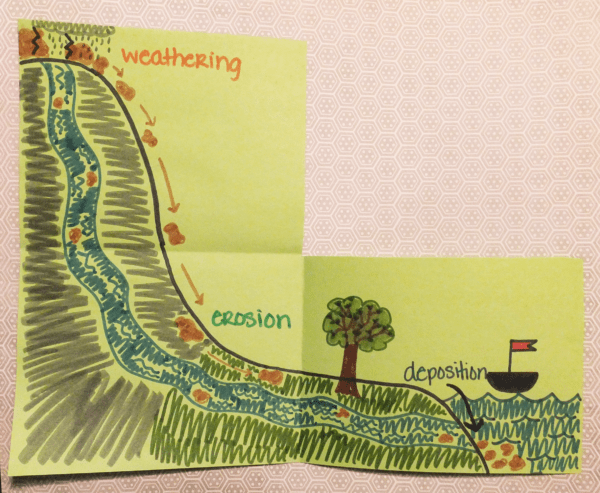
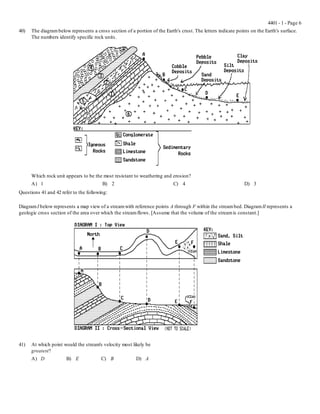

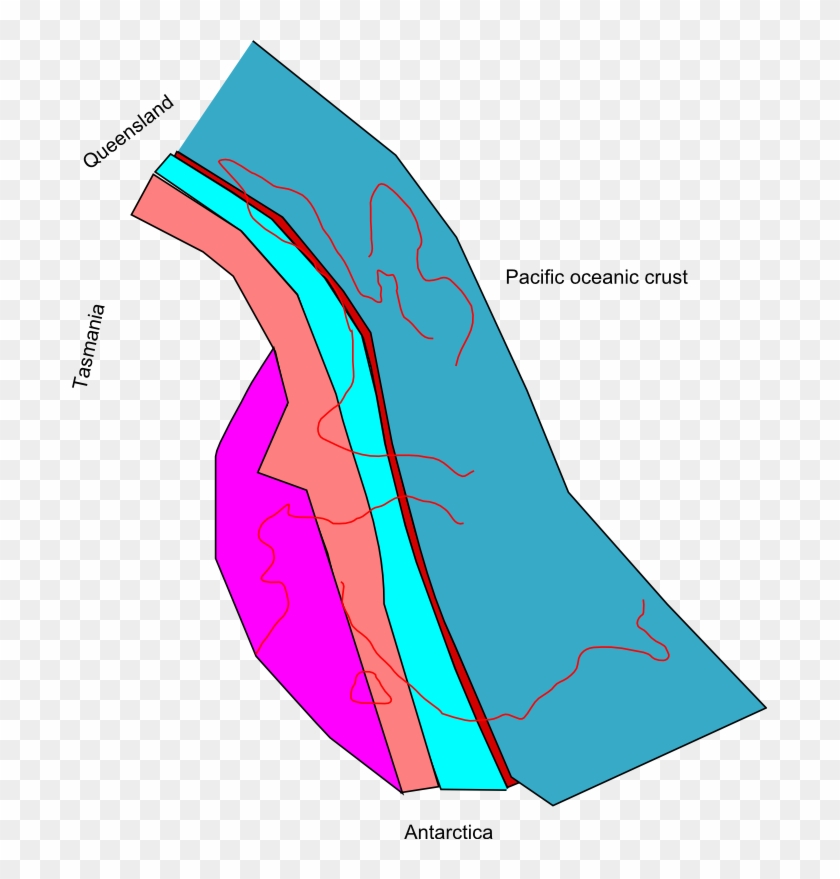
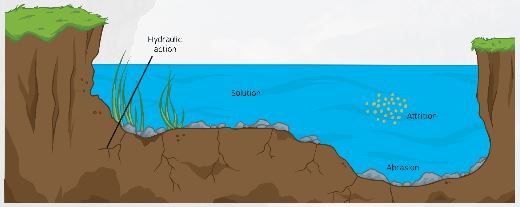
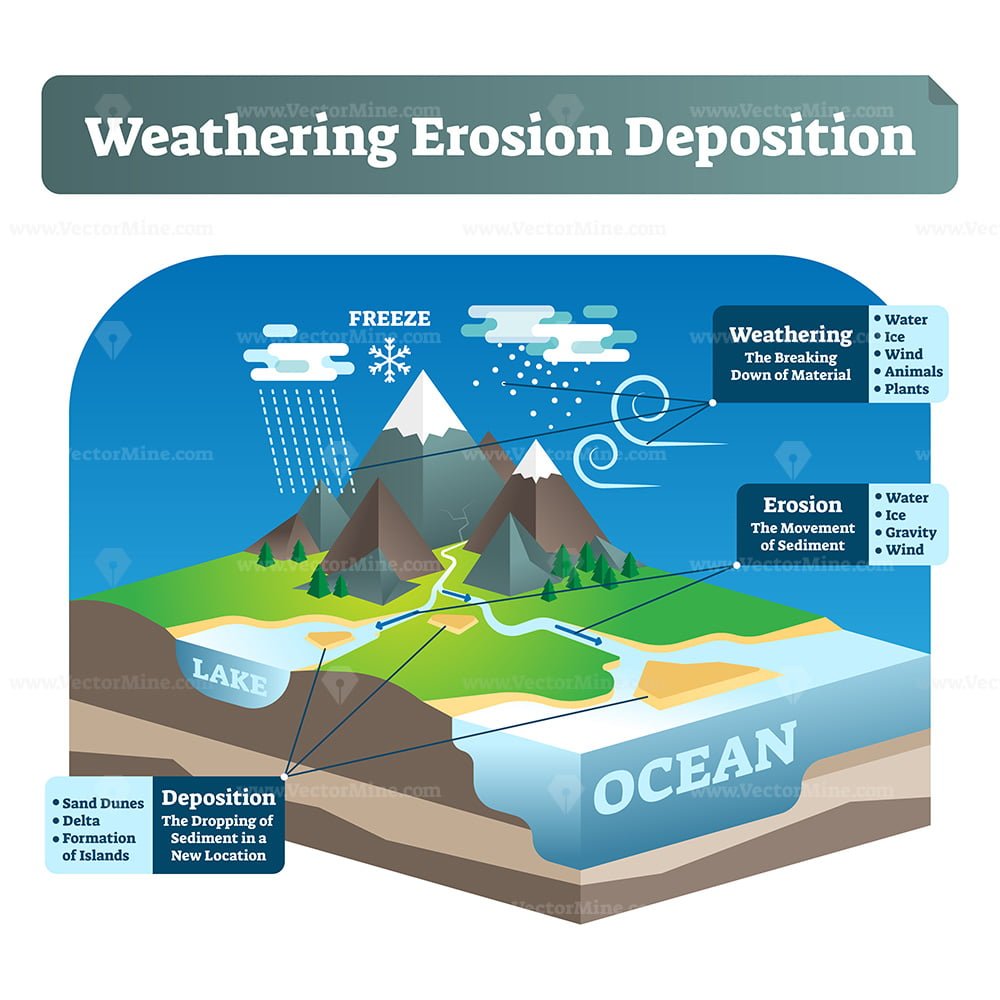

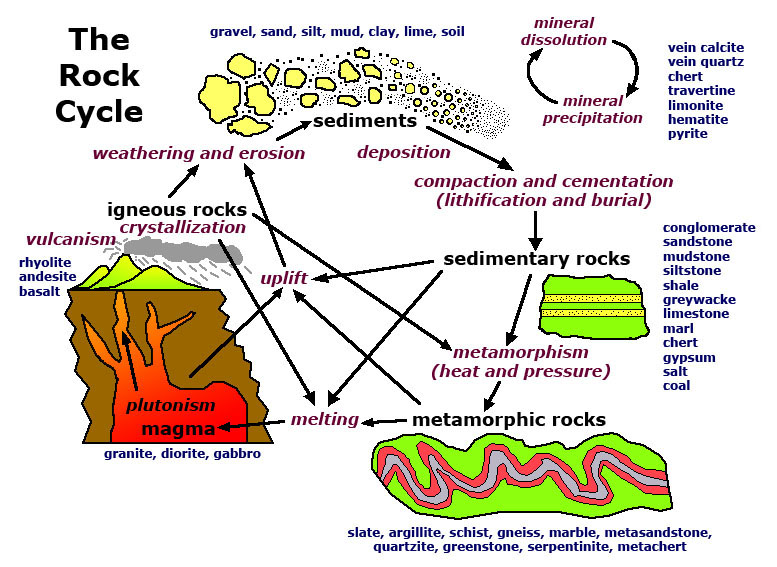
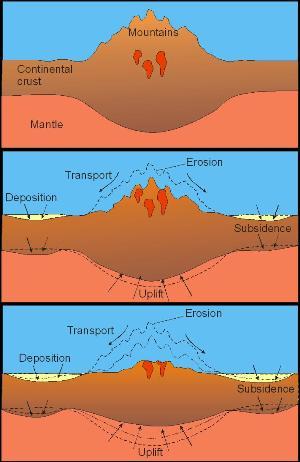
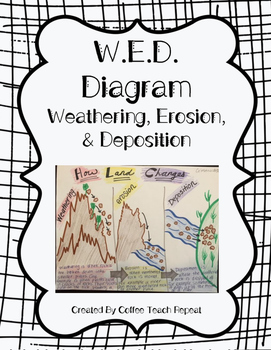

0 Response to "42 weathering and erosion diagram"
Post a Comment